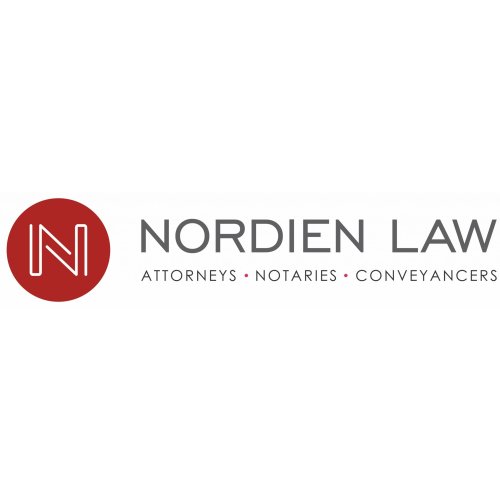Best Restructuring & Insolvency Lawyers in Cape Town
Share your needs with us, get contacted by law firms.
Free. Takes 2 min.
List of the best lawyers in Cape Town, South Africa
South Africa Restructuring & Insolvency Legal Articles
Browse our 2 legal articles about Restructuring & Insolvency in South Africa written by expert lawyers.
- Cross-Border Insolvency: Protecting Assets in South Africa
- Legal Framework: South Africa governs cross-border insolvency through the Cross-Border Insolvency Act 42 of 2000, which incorporates the UNCITRAL Model Law. Mandatory Recognition: Foreign liquidators or "representatives" have no standing to deal with South African assets until they obtain a formal recognition order from a South African High Court. COMI... Read more →
- Business Rescue Proceedings in South Africa for Directors
- Business rescue is a formal rehabilitation process designed to save "financially distressed" companies from liquidation. A general moratorium is triggered immediately, providing legal protection against creditor claims and asset seizures. The Business Rescue Practitioner (BRP) takes full management control of the company, effectively displacing the board's autonomous authority. Directors face... Read more →
About Restructuring & Insolvency Law in Cape Town, South Africa
Restructuring and insolvency law in Cape Town addresses the financial and operational difficulties faced by individuals and businesses. These legal processes provide a framework for resolving insolvency and financial distress while aiming to protect the interests of creditors and debtors. Whether you are a business owner, creditor, or individual in financial difficulty, restructuring and insolvency procedures can offer a structured path to deal with financial challenges. In Cape Town, these matters are governed primarily by national legislation but have unique local applications, especially given the city’s active commercial environment.
Why You May Need a Lawyer
There are numerous situations where obtaining legal help for restructuring and insolvency is crucial. Common scenarios include:
- You or your business are unable to pay debts as they fall due, and you are uncertain about your options.
- Your business is facing declining revenues and mounting creditor pressure, making formal restructuring necessary to avoid liquidation.
- You are a creditor seeking to recover debts from an insolvent individual or company.
- You need to negotiate with creditors to agree on payment plans or settlements.
- You are involved in a business rescue process and require guidance on your rights and obligations.
- You are considering voluntary sequestration or are threatened with compulsory liquidation.
- You require assistance with legal compliance in insolvency proceedings in the Western Cape region.
A qualified restructuring and insolvency lawyer can ensure your rights are protected, navigate complex legal requirements, and help tailor a strategy suited to your specific circumstances.
Local Laws Overview
South African restructuring and insolvency law is largely regulated by national statutes that apply locally in Cape Town, including:
- The Insolvency Act 24 of 1936 - Governs the sequestration (bankruptcy) process for individuals and partnerships, as well as liquidations for certain business entities.
- The Companies Act 71 of 2008 - Introduces business rescue mechanisms for financially distressed companies, allowing for the temporary supervision and restructuring of a company’s affairs, business, property, and debt.
- The Close Corporations Act 69 of 1984 - Deals with insolvency procedures specific to close corporations.
- South African common law and judicial precedent - Relevant for interpreting key aspects of restructuring and insolvency.
In Cape Town, insolvency and business rescue matters are adjudicated through the High Court (Western Cape Division). Regional application may have procedural differences, and access to skilled local professionals is often essential for efficient, compliant proceedings. It is important to act quickly when facing potential insolvency to avoid additional legal consequences and potential personal liability for business owners or directors.
Frequently Asked Questions
What is insolvency under South African law?
Insolvency occurs when an individual or business cannot pay its debts as they become due or when its liabilities exceed its assets. This triggers legal proceedings under the Insolvency Act or Companies Act, which can result in sequestration, liquidation, or business rescue.
What is business rescue?
Business rescue is a statutory process where a financially distressed company is temporarily supervised by a business rescue practitioner. The aim is to restructure the business to return it to solvency or achieve a better return for creditors than liquidation would provide.
How do I know if my company qualifies for business rescue?
A company qualifies for business rescue if it is financially distressed but there is a reasonable prospect of rescuing it by restructuring debts and operations. Legal assessment is required, and a formal application must be made to the High Court or adopted by company resolution.
What is the difference between liquidation and sequestration?
Liquidation is the process for closing and winding up companies or close corporations that are insolvent. Sequestration is the equivalent for individuals or partnerships, aiming to sell assets and pay off creditors as much as possible.
Can I keep my business open if it enters business rescue?
Yes, business rescue allows the business to continue trading under the supervision of a practitioner while a plan is developed and implemented, subject to court or creditor approval.
What happens to employees during insolvency or business rescue proceedings?
Employees' rights are protected under South African law. In business rescue, employment continues unless terminated in accordance with labour laws. In liquidation, employees become preferred creditors for certain unpaid remuneration.
What are the rights of creditors in an insolvency process?
Creditors have the right to be notified of insolvency proceedings, lodge claims, object to decisions, and participate in meetings. Secured creditors have priority over unsecured creditors when assets are distributed.
Can directors be held personally liable for company debts?
Yes, if directors trade recklessly or with intent to defraud creditors, they may be held personally liable according to the Companies Act and Insolvency Act.
How long does the process of liquidation or sequestration take?
The duration depends on case complexity, asset types, and creditor claims. It can take several months to a few years for complex estates or companies with substantial assets.
How much does it cost to initiate business rescue or insolvency proceedings?
Costs vary based on the size and complexity of the entity, legal representation, and practitioner fees. Initial legal consultations and court applications incur set fees, and professional guidance is essential to provide an accurate cost estimate.
Additional Resources
If you require information or support regarding restructuring and insolvency, the following resources may be helpful:
- Western Cape Division of the High Court - Handles applications for liquidation, sequestration, and business rescue within Cape Town.
- Companies and Intellectual Property Commission (CIPC) - Provides guidance on company-related insolvency, business rescue filings, and compliance matters.
- Law Society of South Africa - Offers directories to help find qualified legal professionals in restructuring and insolvency law.
- South African Restructuring and Insolvency Practitioners Association (SARIPA) - Represents and regulates practitioners involved in insolvency cases.
- Debt Counselling Services - Approved practitioners and advisory services are available for individuals exploring debt review or alternative solutions.
Next Steps
If you believe you require legal assistance with restructuring or insolvency in Cape Town:
- Gather all relevant financial documents including accounts, debt schedules, and correspondence with creditors.
- Consider your immediate needs - whether you need urgent protection against creditors, wish to rescue a business, or are seeking advice on your legal exposure.
- Contact a specialist restructuring and insolvency lawyer in Cape Town who is experienced in both court and out-of-court processes.
- Arrange a consultation to discuss your situation and develop a strategic, legally compliant plan to address your financial difficulties.
- Follow your lawyer’s guidance in communicating with creditors, filing court applications, or negotiating settlements.
Legal support during financial distress is vital to ensure you understand your rights, fulfil your legal obligations, and achieve the best possible outcome under South African law. Acting proactively and seeking professional advice early can make a significant difference to your prospects.
Lawzana helps you find the best lawyers and law firms in Cape Town through a curated and pre-screened list of qualified legal professionals. Our platform offers rankings and detailed profiles of attorneys and law firms, allowing you to compare based on practice areas, including Restructuring & Insolvency, experience, and client feedback.
Each profile includes a description of the firm's areas of practice, client reviews, team members and partners, year of establishment, spoken languages, office locations, contact information, social media presence, and any published articles or resources. Most firms on our platform speak English and are experienced in both local and international legal matters.
Get a quote from top-rated law firms in Cape Town, South Africa — quickly, securely, and without unnecessary hassle.
Disclaimer:
The information provided on this page is for general informational purposes only and does not constitute legal advice. While we strive to ensure the accuracy and relevance of the content, legal information may change over time, and interpretations of the law can vary. You should always consult with a qualified legal professional for advice specific to your situation.
We disclaim all liability for actions taken or not taken based on the content of this page. If you believe any information is incorrect or outdated, please contact us, and we will review and update it where appropriate.
















